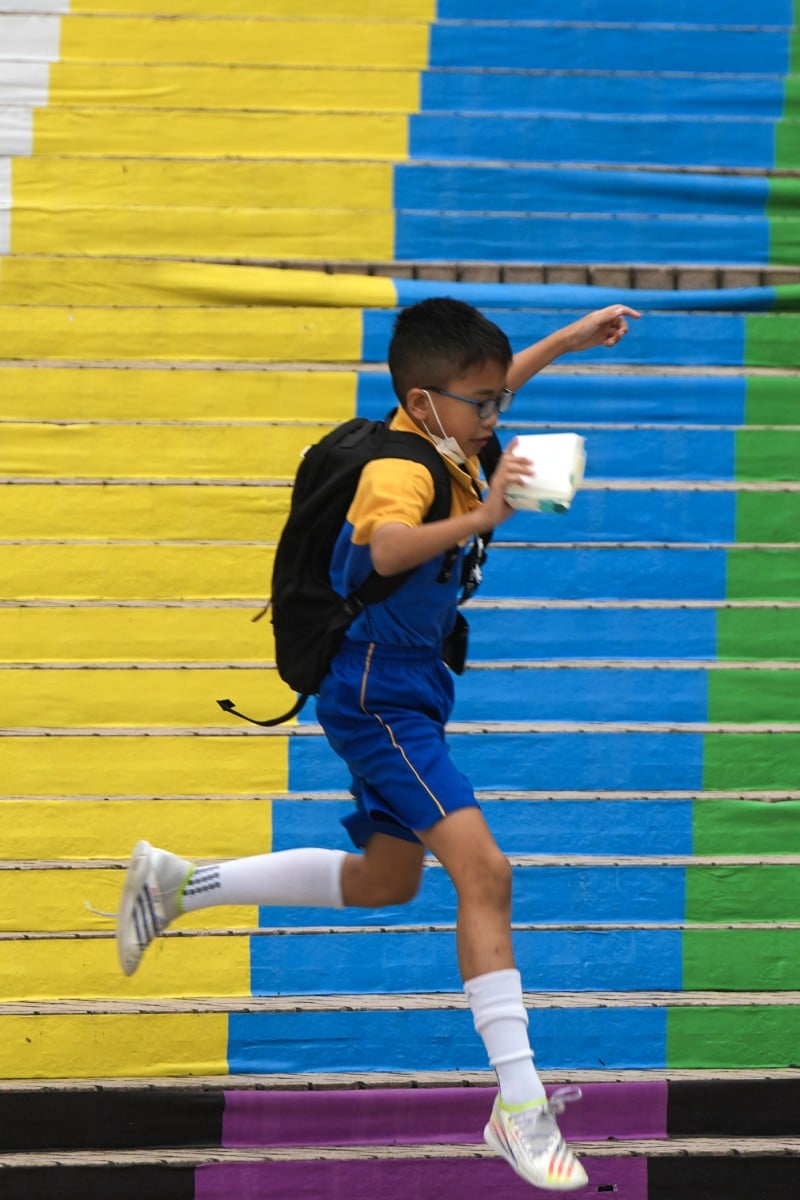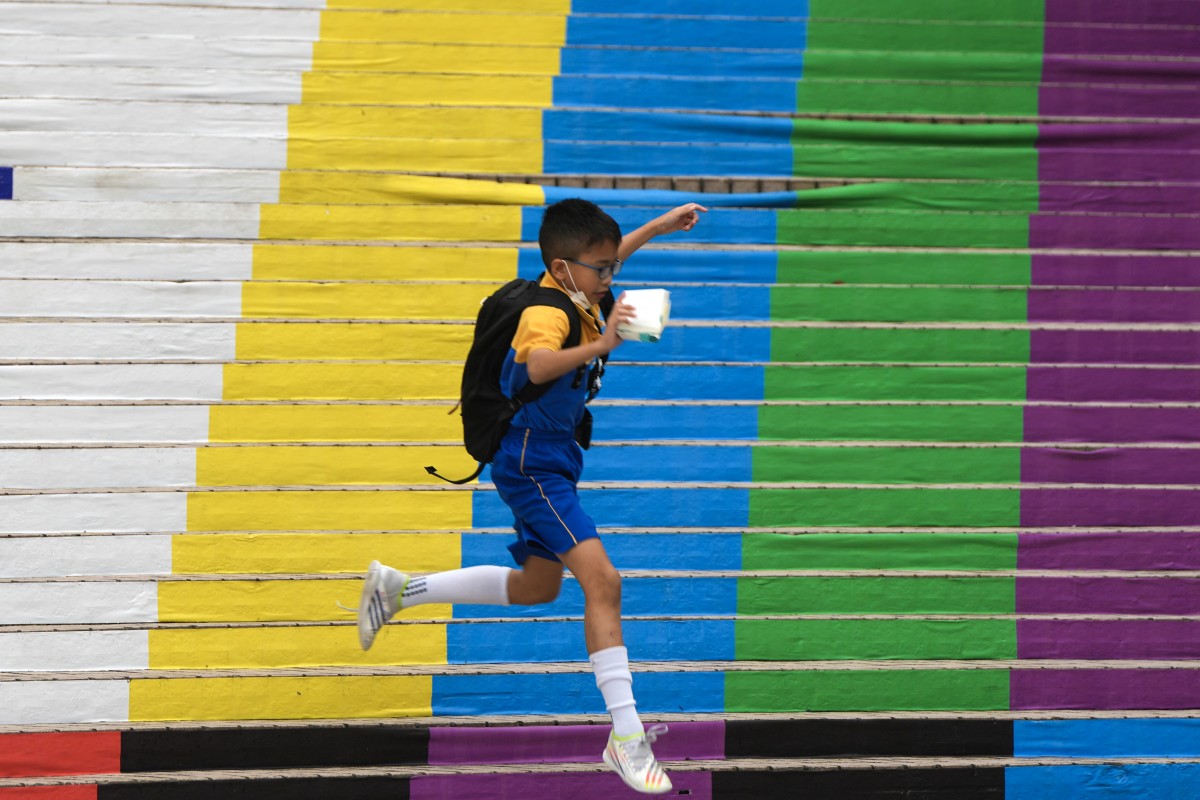
- Education Bureau to offer Primary Six classes same resources in September as Primary Five ones received in current term
- Teachers welcome move, with one saying protection from cuts will boost learning with better ratio of teachers to pupils
 Primary Six classes are to be spared subsidy cuts, the Education Bureau says. Photo: Sam Tsang
Primary Six classes are to be spared subsidy cuts, the Education Bureau says. Photo: Sam TsangHong Kong educators have welcomed a move that would spare schools hit with falling enrolment numbers from subsidy cuts, saying children may benefit from a better student-to-teacher ratio and smaller class sizes.
The measure announced by the Education Bureau on Tuesday should lead to more resources for students, especially those in Primary Six who faced key exams that determine which secondary schools they would join, they said.
The bureau also revealed it would eliminate one place in every Primary One class at schools that parents could approach themselves, which would minimise the risk of closure for less popular schools.
Hong Kong’s ESF schools change residence policy, giving parents and students more options
In a letter sent to principals and supervisors of aided schools, the bureau said it would offer Primary Six classes the same resources in September as Primary Five ones in the current term.
“To ensure continuity and stability and to facilitate schools in arranging manpower and resources for Primary Six in the next school year, the Education Bureau has decided to implement the new arrangement on a trial basis from the 2023-24 school year,” it said.
The bureau counts the number of students in each school about two weeks after the new term starts to decide how to allocate resources.
An SCMP analysis found there were 56,821 Primary Six students enrolled in Hong Kong schools as of September last year. This number is 3,337 fewer than the 65,018 Primary Five pupils enrolled in 2021 and represents a 6 per cent drop in students – the highest among all grades in primary schools.
The bureau also announced it would eliminate one spot in each classroom at schools that can be directly chosen by parents after the release of the central allocation results next month.
Parents of children starting their primary education can approach their preferred school if they are unhappy with the central allocation results – known as “door-knocking”.
Hong Kong school facing closure barred from setting up private Primary One
For schools with 25 students in every class, the number of door-knocking places will be cut from two to one. For schools with classes of 30, the number will be reduced from three to two.
Education authorities will apply the two new measures for three academic years and then review them.
Chu Kwok-keung, a lawmaker representing the education sector, said the student-to-teacher ratio would be improved as staffing levels need not be slashed when the number of students dropped.
“Some schools originally had three classes but their resources needed to be cut due to [an insufficient number of] students. But now they can have [the resources of three classes] to teach two classes under the new arrangement,” he said, adding that students would therefore receive good care.
The move would be particularly good for Primary Six students facing exams that would affect their move to secondary schools, he added.
Polly Chan Suk-yee, principal of the Yaumati Catholic Primary School (Hoi Wang Road) and the vice-chairwoman of the Hong Kong Aided Primary School Heads Association, said some schools had suffered resource cuts amid the emigration wave of the last two years.
It was also difficult for operators to admit more Primary Six students, as most senior pupils preparing for secondary school would avoid switching schools, Chan said.
“As some schools experienced a loss of students in the emigration wave, they would be given fewer resources if the number of students slid to the level at which they could only launch fewer classes,” she added.
Langton Cheung Yung-pong, honorary chairman of the association, said elite schools or those that enrolled many students from the middle class had suffered more from the subsidy cuts.
“We had never seen this situation before, and we urged the bureau not to reduce the resources given to Primary Six no matter how many students the grade lost,” he said.
“The resources were cut not because of popularity, but because students had moved to other places with their families,” Cheung said.
Several Western countries, including Britain, Canada and Australia, have offered emigration pathways to Hongkongers in response to Beijing’s 2020 imposition of the national security law in the city.
Latest statistics show 172,500 Hongkongers applied for the British National (Overseas) visa scheme, London’s bespoke migration pathway, from the launch of the programme to March this year.